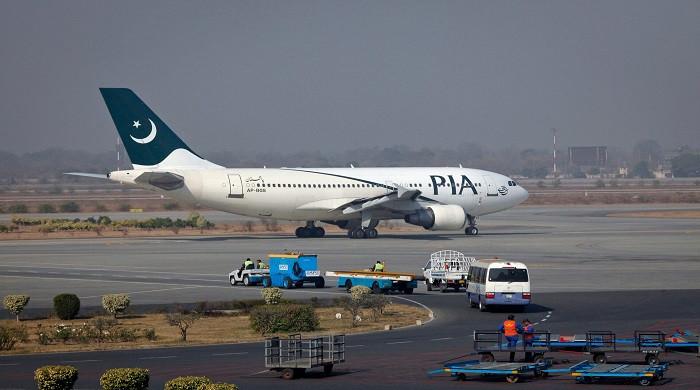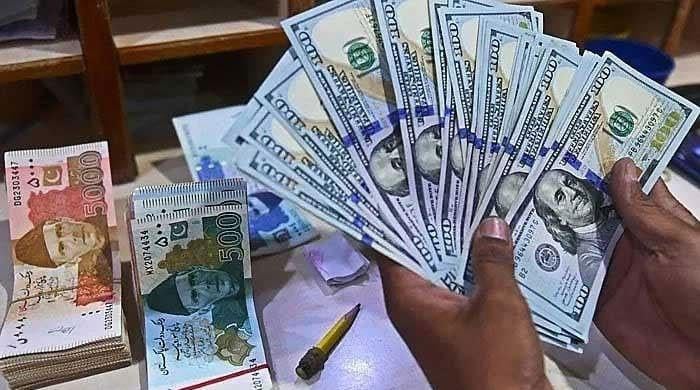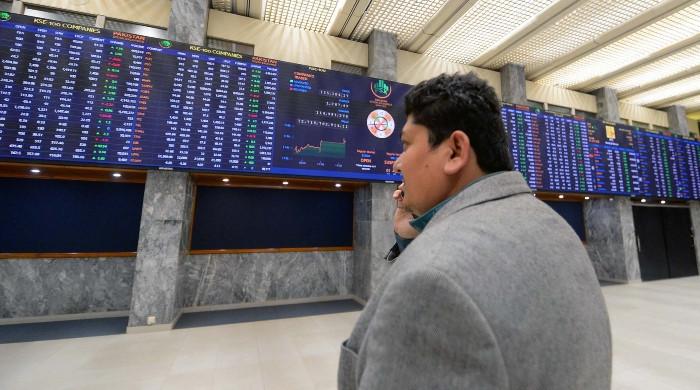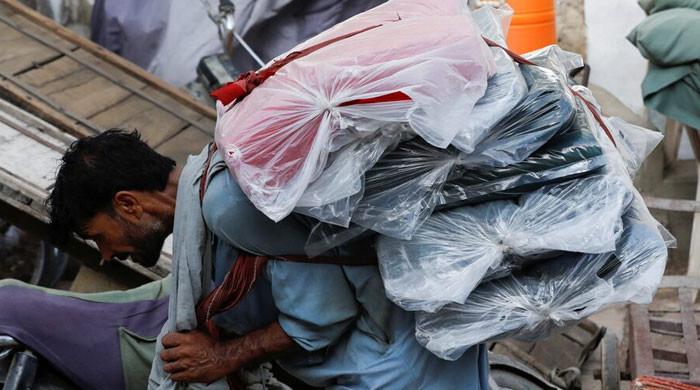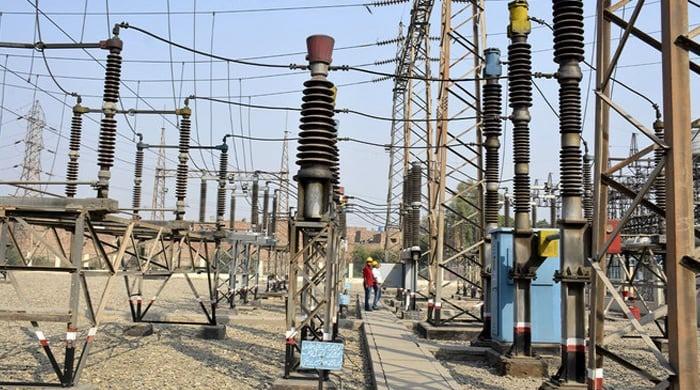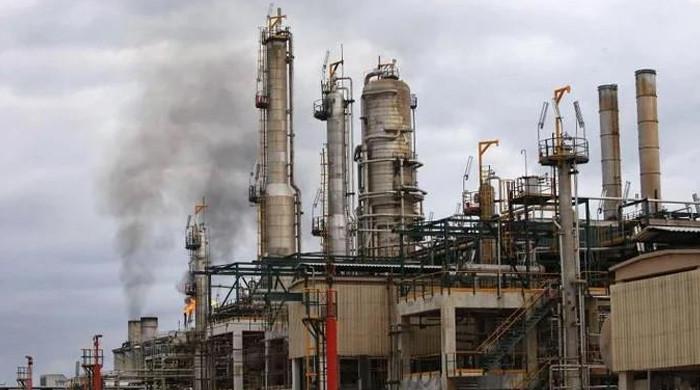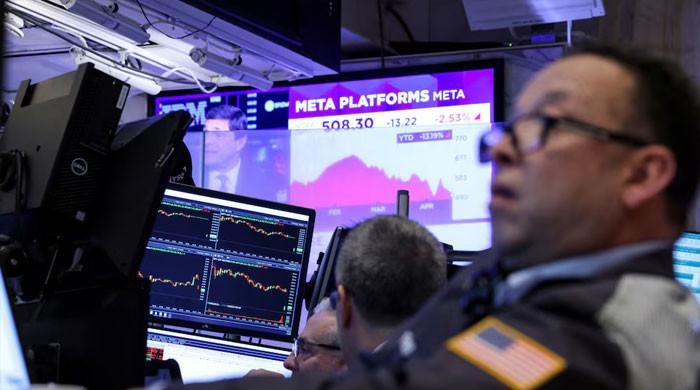Mini-budget on the cards as govt decides to take tough steps
PM Shehbaz Sharif says economic roadmap will revive economy and provide relief to the people
January 03, 2023
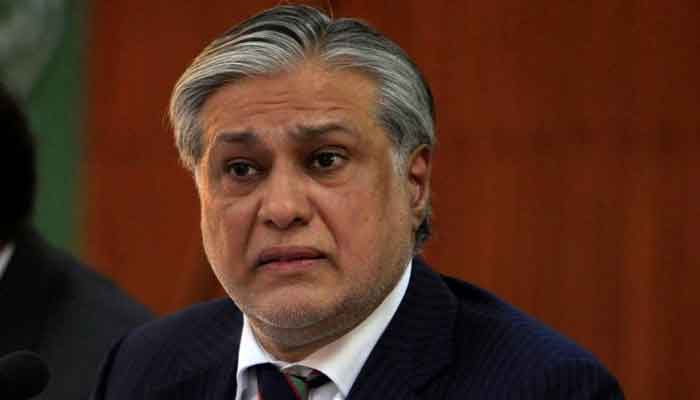
- Flood levy will be imposed in the range of 1 to 3%.
- Petroleum levy would remain around Rs70-100 per litre
- Dar to grant assent to the mini-budget proposals within two to three days.
ISLAMABAD: The federal government is working on a mini-budget including some tough measures like imposing a "flood levy" and increasing duty on petroleum products.
The “economic roadmap” was shared with the National Security Committee (NSC) Monday after the body took “major decisions” to revive the economy and provide relief to the people.
The NSC, which held two sessions on Friday and Monday deliberating the country’s economic and security situation, underscored that comprehensive "national security" revolves around economic security and that sovereignty or dignity comes under stress without self-sufficiency and economic independence.
The forum undertook a comprehensive view of the ongoing economic situation vis-à-vis challenges being faced by the common people of Pakistan, particularly the lower and middle-income classes.
Finance Minister Ishaq Dar briefed the NSC about the economic stability roadmap of the government including the status of discussions with international financial institutions, exploring other financial avenues based on mutual interests as well as relief measures for common people.
In a separate statement Monday, Prime Minister Shahbaz Sharif said that the NSC took some major decisions after hours-long deliberations.
"Two of them stand out: State of Pakistan will adopt zero tolerance policy for terrorists challenging its writ. Peace is non-negotiable. Two, the economic roadmap will revive the economy and provide relief to the people."
Mini-budget
Meanwhile, sources confirmed to The News that during the NSC meeting, it was decided to slap "flood levy" in the range of 1 to 3% through the promulgation of a presidential ordinance and firm up a proposal for unveiling the mini-budget.
The proposal is expected to be finalised within the ongoing week.
The committee approved the rationalization of imports and now the government is all set to slap a flood levy in the range of 1 to 3% to curtail imports and fetch Rs60 billion into the second half (Jan-June) period of the current fiscal year.
The finance minister, according to the publication, is likely to grant assent to the mini-budget proposals within the next two to three days after which a presidential ordinance will be promulgated.
“An important meeting is expected to be held on Tuesday (today) for finalising proposals related to the upcoming mini-budget,” said one top official on the condition of anonymity.
So far, no other proposals could be finalised yet mainly because the government is in a catch-22 situation, as it is quite hard for the policy-makers to impose additional taxes at a time when the country is facing stagflation.
The CPI-based inflation stood at over 25%, while the real GDP growth was projected to come down from 5% to less than 2% for the current fiscal year.
Tax collection shortfall
The Federal Board of Revenue (FBR) faced a shortfall of Rs225 billion for achieving the desired target for December 2022, as the tax collection stood at Rs740 billion against the fixed target of Rs965 billion.
The authorities envisaged an annual tax collection target of Rs7,470 billion but in the wake of Rs225 billion, it would be hard to go close to the desired annual tax collection target.
The federal government prefers to impose flood levy mainly because it will not become part of the Federal Divisible Pool (FDP) under the National Finance Commission (NFC) Award. So, the additional revenues collected through the flood levy would not be distributed among the provinces if the government moved ahead on this front.
The government functionaries argued that they had asked the FBR to gear up efforts to materialise the desired tax collection target at all costs.
The FBR high-ups said that tax cases worth Rs250 billion were pending with the higher judiciary and they had informed the IMF that they would be able to collect the due taxes till March 2023.
They said IMF had been requested to stagger tax collection without revising downward the annual tax collection target of Rs7,470 billion till June 30, 2023.
The FBR has also been assigned to identify those sectors that earned lofty profits in the last fiscal year and two such areas were the banking and beverages sectors.
It is yet to see how the government decides to take action to fetch additional tax and non-tax revenue collection in the remaining period of the current fiscal year.
Petroleum Levy
The government has also been facing the gigantic task of achieving PDL to the tune of Rs855 billion and its downward revision is also on cards.
The government jacked up the levy on MS petrol to Rs50 per litre and on diesel, it stood at Rs32.50 per litre.
The meeting also discussed that the petroleum levy would remain around Rs70-100 per litre and petrol, gas and electricity will be priced at cost and cost+ basis.
Targeted subsidy
The NSC discussed that no subsidy would be given except to the vulnerable and most affected.
It was also discussed that funds transfer to the provinces will be linked to the power and gas losses in the provinces. The issue of the current account deficit was also highlighted and emphasised dollar and rupee parity based on the market rate.
It was also discussed that the fiscal deficit will be met by allocating a certain percentage of GDP towards its financing.
IMF programme
The forum also raised the point of a 10-year comprehensive plan on Pakistan’s structured support from China, the UAE, KSA, Qatar, the EU and US.
The News learnt that after the implementation of these proposals, all the hurdles in the restoration of the IMF programme will be over and the loan will be revived in March.




